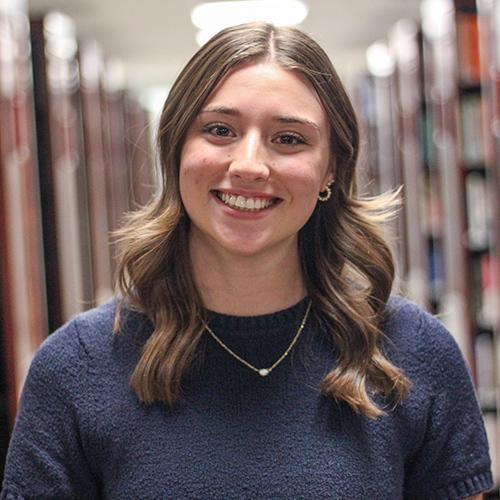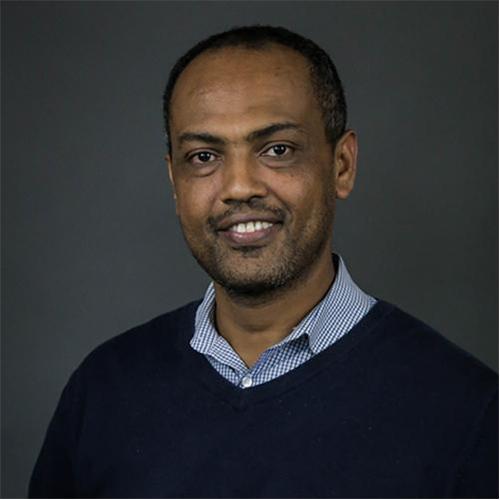Faculty Spotlight: Dr. Derese Kassa
It’s going to be a busy but important year ahead for Dr. Derese Kassa, associate professor of Sociology at Iona College. As one of the world’s leading global migration experts, Kassa will soon embark on a research mission focused on the civil war in his native country of Ethiopia, and the crisis of displacement that has affected hundreds of thousands of people as a result.
The project, funded by the prestigious Carnegie African Diaspora Fellowship Program (CADFP), will allow him to conduct on-the-ground research from January through August 2023. In addition to shaping major policy and humanitarian decisions, Kassa said his work in Ethiopia will also help to inform the development of a new Black Studies major at Iona College.
Before he leaves, however, Kassa will also be participating in the National Endowment for the Humanities Summer Institute for Higher Education Faculty at Howard University. This all comes as Kassa continues his ongoing research on global migration trends thanks to a seven-year, $2.4 million grant from the Canadian Social Sciences and Humanities Research Council.
Kassa recently took the time to share more about these opportunities, highlighting what it means for Iona students as well.
1. Can you describe your work and the research that led to your invitation to attend the National Endowment for the Humanities Summer Institute for Higher Education Faculty?
My invitation stems from the correlation between my work at Iona, my research and the theme of the NEH Summer Institute seminar — which is the Black diaspora in the United States. Dr. Nadine Cosby and I co-launched the Black Studies Minor program at Iona and we currently teach the centerpiece course, BST 101: Black Cultural Identity, Past and Present. This course covers the historical foundations and backgrounds of people of African descent throughout the diaspora and the social forces that have shaped contemporary life, particularly Black life, in Africa and the Americas. Meanwhile, my research intersects population movements and international migration and conflicts.
I look forward to attending the seminar this summer, which is designed to encourage discussion, intellectual stimulation and community building.
2. Can you tell us about your joint research proposal for the Carnegie African Diaspora Fellowship Program?
The Carnegie African Diaspora Fellowship program is a highly prestigious and competitive grant given to joint applications submitted by a scholar based in America and an African scholar (stationed in any African country) to research contemporary topics.
I worked with Dr. Fana Gebresenbet, an Ethiopian scholar from Addis Ababa University, on a research proposal focusing on Ethiopia being tragically engulfed by a civil war that erupted on November 4, 2021 – and is still ongoing. Following the conflict, hundreds of thousands of Ethiopians have been displaced in the Tigray, Afar, and Amhara regions of the country.
We are planning to conduct a study on 1) the origin and dynamics of the conflict; 2) push and pull factors behind the displacement; 3) state policies and measures; and 4) community resilience, return and rehabilitation practices. The study will attempt to sample Internally Displaced Persons (IDP) sites in Benishangul Gumuz, Afar, Amhara and Oromiyaa regional states.
3. How will this fellowship program impact your future work and research?
I will be on sabbatical leave from January - August 2023, and I am hoping it will enable me to focus on empirical research work. Additionally, the outcomes (at least two, peer-reviewed journal articles written by me and Dr. Gebresenbet), will be a significant contribution to the ongoing conversation on conflict, displacement and urbanism in the global south. Some of the findings and discussions on the topic could also be used as input and data points by policy makers in Ethiopia and the greater Horn of Africa. But more importantly, I see this project as a springboard to develop a proposal to start a new book project that will focus on war and displacement in contemporary Ethiopia.
4. What are you looking forward to most?
I am looking forward to going back home to Ethiopia and doing fieldwork at my alma mater where I first went to school, Addis Ababa University.
5. From these experiences, what do you hope to bring back to your students at Iona?
Iona has a lot to benefit from this project. First, I will be able to advance my research agenda and publish writings focused on Ethiopia and the crisis of internal displacement that engulfed the nation. These experiences will create a bridge between the College and an Ethiopian higher education institution, Addis Ababa University, to research and publish together. Long term, these links could further be augmented to create inter-departmental and intervarsity links between Iona and an African counterpart.
Furthermore, we are planning to upscale the Black Studies minor program into a full-fledged Black Studies major in Fall 2024 and my research will provide valuable input into the course development.



